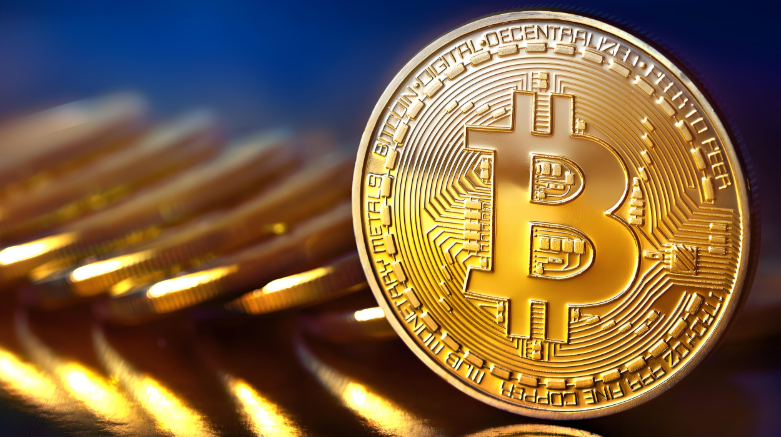United States' Bitcoin Strategic Reserve Explained
Advertisements
In a recent announcement, the United States reaffirmed its intentions to establish a strategic Bitcoin reserve. This pivotal decision sent Bitcoin soaring to unprecedented heights, surpassing $107,000, eliciting exuberance among cryptocurrency enthusiasts and investors alike.
But what does the concept of a strategic reserve truly entail, and how might it function within the landscape of cryptocurrency? Fundamentally, a strategic reserve is an essential stockpile of critical resources that can be tapped during crises or supply disruptions. The most celebrated instance of this is the U.S. Strategic Petroleum Reserve, created in response to the Arab oil embargo that crippled the American economy in the early 1970s. Established by Congress in 1975, it serves as the largest emergency supply of crude oil globally.
While the U.S. holds a strategic reserve for oil, other nations possess stocks of different commodities. For instance, Canada uniquely maintains a strategic reserve of maple syrup, a testament to the country’s cultural export. Additionally, China has amassed strategic reserves of metals, grains, and even pork products, showcasing the varieties and forms that such reserves can take.
So, how is the U.S. planning to implement a Bitcoin strategic reserve? There is a lively debate among analysts and legal experts regarding whether the executive branch can unilaterally establish such a reserve or if it would require congressional approval. Some argue that a directive to the U.S. Treasury's Exchange Stabilization Fund could facilitate the creation of a Bitcoin reserve. This fund, typically employed for buying or selling foreign currencies, could also be leveraged to hold Bitcoin assets.

A portion of the proposed reserve might consist of Bitcoin confiscated from criminal activities. Reports suggest that this could amount to around 200,000 tokens, estimated to be worth approximately $21 billion at current market prices. During a July speech unveiling the Bitcoin reserve initiative, it was hinted that these seized assets could form the foundation of the reserve, although the legalities surrounding the transfer from the Department of Justice remain unclear.
Furthermore, there has been no indication yet whether the government plans to augment this reserve by purchasing additional Bitcoin on the open market. If the government opts for this route, it could mean issuing bonds to raise the necessary capital. Yet, some proponents of the Bitcoin reserve suggest that the U.S. might consider liquidating parts of its gold reserves to fund Bitcoin purchases, potentially reshaping the dynamics of asset management within the federal treasury.
The most detailed proposal circulating in Washington comes from pro-cryptocurrency Republican Senator Cynthia Lummis. Last month, she disclosed her personal holdings of five Bitcoins, reflecting her enthusiasm for the digital currency. In July, she introduced a bill that has yet to garner bipartisan support, which aims to establish a reserve managed by the U.S. Treasury.
This proposed legislation envisions a systematic acquisition program, wherein the Treasury would set forth a plan to purchase 200,000 Bitcoins annually over five years, ultimately accumulating a reserve of one million coins. This would represent approximately 5% of the total global supply of Bitcoin, which stands at around 21 million. The financial strategy suggests that these Bitcoin purchases would be funded through profits derived from Treasury deposits held with the Federal Reserve and returns on gold reserves.
Once established, this Bitcoin reserve would be maintained for a minimum of 20 years, marking a long-term commitment from the U.S. government to the burgeoning cryptocurrency market.
The advocates for a Bitcoin reserve highlight several potential benefits. In her July address, Senator Lummis articulated that the reserve could play a crucial role in bolstering the U.S. position in the global Bitcoin market amid intensifying competition from other nations. The notion held by some Bitcoin supporters is that, by holding such reserves, the U.S. could cut its fiscal deficit without resorting to increased taxation, thereby enhancing the stability and strength of the U.S. dollar.
Furthermore, last November, Lummis confidently expressed that her initiative could halve national debt within two decades, arguing, “This will help us mitigate the impacts of inflation and safeguard the dollar’s standing on the global stage.” Such optimistic projections resonate with a particular group of investors who view Bitcoin as a hedge against inflation, particularly in the current economic climate characterized by uncertainty and fluctuating markets.
However, not everyone is on board with these ambitious plans. Cryptocurrency skeptics caution against Bitcoin’s volatile nature and its lack of intrinsic value, voicing concerns that, unlike other commodities, Bitcoin does not play a critical role in the functioning of the U.S. economy. They argue that Bitcoin, created during the 2008 financial crisis, remains too nascent and unpredictable for such serious government investment. The specter of cyberattacks also looms large, as cryptocurrency wallets have proven to be vulnerable to technological breaches, raising questions about the security of a government-held Bitcoin reserve.
Moreover, any significant government intervention in the Bitcoin market, whether through buying or selling, could result in substantial volatility of its price, lending an element of risk to an already unpredictable asset class. As the dynamics of cryptocurrencies continue evolving, the implications of the U.S. Bitcoin strategic reserve remain complex and multifaceted.
To conclude, while the potential establishment of a strategic Bitcoin reserve in the U.S. could present exciting new avenues for both the government and investors, it also brings forth an array of risks and challenges. In a world where digital currencies are gaining prominence, the balance between innovation, regulation, and economic stability will be critical in determining the future of Bitcoin within the traditional financial framework.
Leave a Comments